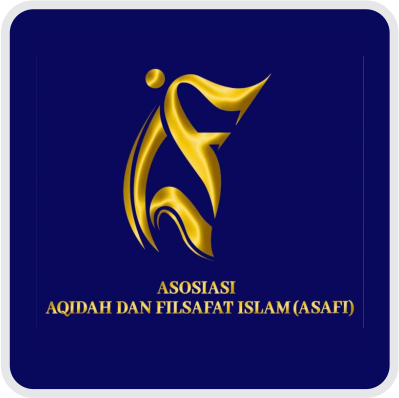Integrative Knowledge and Contemporary Issues: Evaluating Amin Abdullah's Paradigm of Multidisciplinarity
DOI:
https://doi.org/10.30983/itr.v2i1.8408Keywords:
Amin Abdullah, Integration of Knowledge, Multidisciplinary ApproachAbstract
References
Abdullah, M. A. (n.d.). Google Cendekia. Retrieved June 14, 2024, from https://scholar.google.com/citations?hl=id&user=dvbFi04AAAAJ&view_op=list_works
Abdullah, M. A. (1992). The Idea Of Universality Of Ethical Norms In Ghazali & Kant. Türkiye Diyanet Vakfi.
Abdullah, M. A. (2020). Antara al-Ghazali dan Kant: Filsafat Etika Islam (Hamzah (ed.); 1st ed.). IRCiSoD.
Abdullah, M. A. (2021). Multidisiplin, Interdisiplin, Transdisiplin: Metode Studi Agama dan Studi Islam di Era Kontemporer (3rd ed.). IB Pustaka.
Akmal, M. I. (2024). Pemikiran Amin Abdullah Seputar Integrasi Keilmuan. Fathir: Jurnal Studi Islam, 1(2), 120–136. https://jurnal.fanshurinstitute.org/index.php/fathir/article/view/13%0A
Al-Makin. (2023). 70 tahun M. Amin Abdullah: Pemikir, Guru dan Pemimpin (1st ed.). Laksbang Akademika.
Allen, J., Howland, B., Mobius, M., Rothschild, D., & Watts, D. J. (2024). Evaluating the fake news problem at the scale of the information ecosystem. Science Advances, 6(14), eaay3539. https://doi.org/10.1126/sciadv.aay3539
Ambrozy, M., Krempaský, J., Kalugina, O. A., Sizova, Z. M., Krokhina, J. A., & Valčo, M. (2020). Christianity and Information: Contributions of Stephen Hawking to Physics, Philosophical Ethics, and Theology. Bogoslovni Vestnik/Theological Quarterly, 80, 901–914. https://doi.org/10.34291/BV2020/04/Ambrozy
Anwar, S. (2021). Integrasi Keilmuan Prespektif M. Amin Abdullah Dan Imam Suprayogo. Jurnal Pedagogy, 14(2), 142–165.
Ayu, A., Permatasari, D., & Maulida, H. S. (2024). Integration Of Islamic Sciences According To M. Amin Abdullah And Its Implications For Islamic Universities. Jurnal Asy-Syukriyyah, 25(1 SE-Articles), 62–76. https://doi.org/10.36769/asy.v25i1.475
Bhattacharya, J., & Packalen, M. (2020). Stagnation and scientific incentives. National Bureau of Economic Research.
Dewi, C. S., Putri, M. A., & Amrillah, R. (2024). Integrasi Integrasi Ilmu Keislaman dengan Ilmu Pendidikan Anak Usia Dini dalam Perspektif Muhammad Amin Abdullah. Jurnal Pendidikan Anak Usia Dini, 1(3), 8. https://doi.org/https://doi.org/10.47134/paud.v1i3.575
Hayati, Y., Asmarika, & Febiana, F. (2024). Pemikiran – Pemikiran Komperatif Mahmud Yunus Dan Amin Abdullah Dalam Bidang Pendidikan Islam. Miftahul Ulum, 2(1 SE-Articles), 1–20. https://journal.staimutanjungpinang.ac.id/index.php/junamu/article/view/81
Herrick, C. (2022). Clean problems: Simplicity, complexity and the contemporary history of global noncommunicable disease prioritisation. SSM - Qualitative Research in Health, 2, 100068. https://doi.org/https://doi.org/10.1016/j.ssmqr.2022.100068
Husaini, A. (2006). Hegemoni Kristen-Barat Dalam Studi Islam di Perguruan Tinggi (N. Hidayat (ed.); 1st ed.). Gema Insani Press.
Juhana, H., Natsir, N. F., & Haryanti, E. (2022). Integrasi Ilmu M. Amin Abdullah dan Kuntowijoyo. JIIP - Jurnal Ilmiah Ilmu Pendidikan, 5(1 SE-), 192–200. https://doi.org/10.54371/jiip.v5i1.397
Junaedi, M., & Wijaya, M. M. (2019). Pengembangan Paradigma Keilmuan Perspektif Epistemologi Islam: Dari Perenialisme hingga Islamisme, Integrasi-Interkoneksi dan Unity Sciences. Kencana.
Kaalund, N. K. L. (2014). Oxford Serialized: Revisiting the Huxley–Wilberforce debate through the periodical press. History of Science, 52(4), 429–453. https://doi.org/10.1177/0073275314559330
Lee, Y.-T., Jamnik, M., Maedge, K., & Chen, W. (2020). The Darwin-God dilemma: A totemic approach to the meaning of life and human existence. Evolutionary Behavioral Sciences, 14(4), 355–361. https://doi.org/https://doi.org/10.1037/ebs0000229
Liquin, E. G., Metz, S. E., & Lombrozo, T. (2020). Science demands explanation, religion tolerates mystery. Cognition, 204, 1–17. https://doi.org/https://doi.org/10.1016/j.cognition.2020.104398
Masyitoh, D. (2020). Amin Abdullah dan paradigma integrasi-interkoneksi. JSSH (Jurnal Sains Sosial Dan Humaniora), 4(1), 81–88. https://doi.org/10.30595/jssh.v4i1.5973
Omodeo, P. D. (2022). Geocentrism BT - Encyclopedia of Renaissance Philosophy (M. Sgarbi (ed.); pp. 1353–1358). Springer International Publishing. https://doi.org/10.1007/978-3-319-14169-5_67
Prastowo, A. I., Suharto, T., & Widodo, S. A. (2023). Harmonizinng Knowledge Integration: Insights from Amin Abdullah and Nidhal Guessom in Pesantren-Based Higher Education. AL-ISHLAH: Jurnal Pendidikan, 15(3), 3109–3119. https://doi.org/https://doi.org/10.35445/alishlah.v15i3.3703
Qoiman, A. (2021). Spirit” Kembali Kepada Al-Qur’an dan Sunnah” di Era Disrupsi dalam Muhammadiyah Perspektif Amin Abdullah. Jurnal Studi Hadis Nusantara, 3(1), 48–59. https://jurnal.syekhnurjati.ac.id/index.php/jshn/article/view/9014
Roji, F. (2023). Konsep Studi Islam Menurut Muhammad Nur Hakim Dan Muhammad Amin Abdullah. Al Aqidah (Jurnal Studi Islam), 3(2), 77–87.
Sani, A. (2023). Jalan Baru Kebenaran dalam Epistemologi Integrasi dan Interkoneksi Muhammad Amin Abdullah. ISME: Journal of Islamic Studies and Multidisciplinary Research, 1(1), 41–50. https://doi.org/https://doi.org/10.61683/isme.vol11.2023.41-50
Sufratman, S. (2022). Integrasi Agama dan Sains Modern di Universitas Islam Negeri (Studi Analisis Pemikiran M. Amin Abdullah). Al-Afkar, Journal For Islamic Studies, 5(1), 209–228. https://doi.org/https://doi.org/10.31943/afkarjournal.v5i1.211
Tajuddin, T., & Awwaliyah, N. M. (2021). Paradigma Integrasi-Interkoneksi Islamisasi Ilmu Dalam Pandangan Amin Abdullah. Aksiologi: Jurnal Pendidikan Dan Ilmu Sosial, 1(2), 56–61. https://doi.org/https://doi.org/10.47134/aksiologi.v1i2.11
Tsalitsah, I. M., & Muhsinin, M. (2024). Integrasi Filsafat, Sains Dan Agama Dalam Pemikiran Islam: Integrasi Filsafat, Sains Dan Agama Dalam Pemikiran Islam. Al-Hikmah: Jurnal Studi Agama-Agama, 10(1), 64–77. https://doi.org/https://doi.org/10.30651/ah.v10i1.22858
Yu, F., Stolzenberg, R., & Brem, A. (2023). Assessment of the mono-disciplinary approaches and interdisciplinary approaches in prototyping practice. Journal of Engineering and Technology Management, 67, 101729. https://doi.org/https://doi.org/10.1016/j.jengtecman.2022.101729
Downloads
Published
How to Cite
Issue
Section
Citation Check
License
Copyright (c) 2024 Budiman Dasrizal, Muhammad Suhail, Raihan Pradipta

This work is licensed under a Creative Commons Attribution-ShareAlike 4.0 International License.


